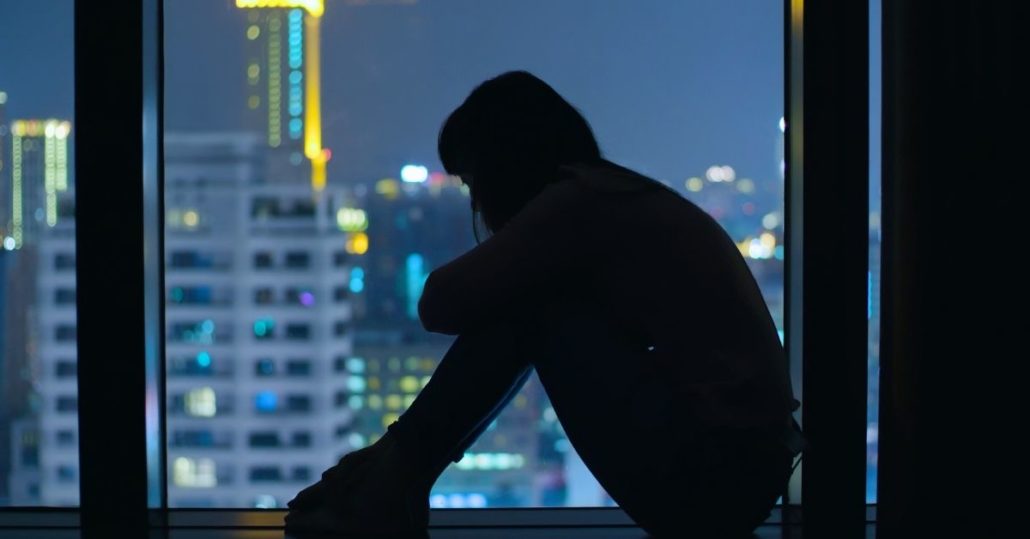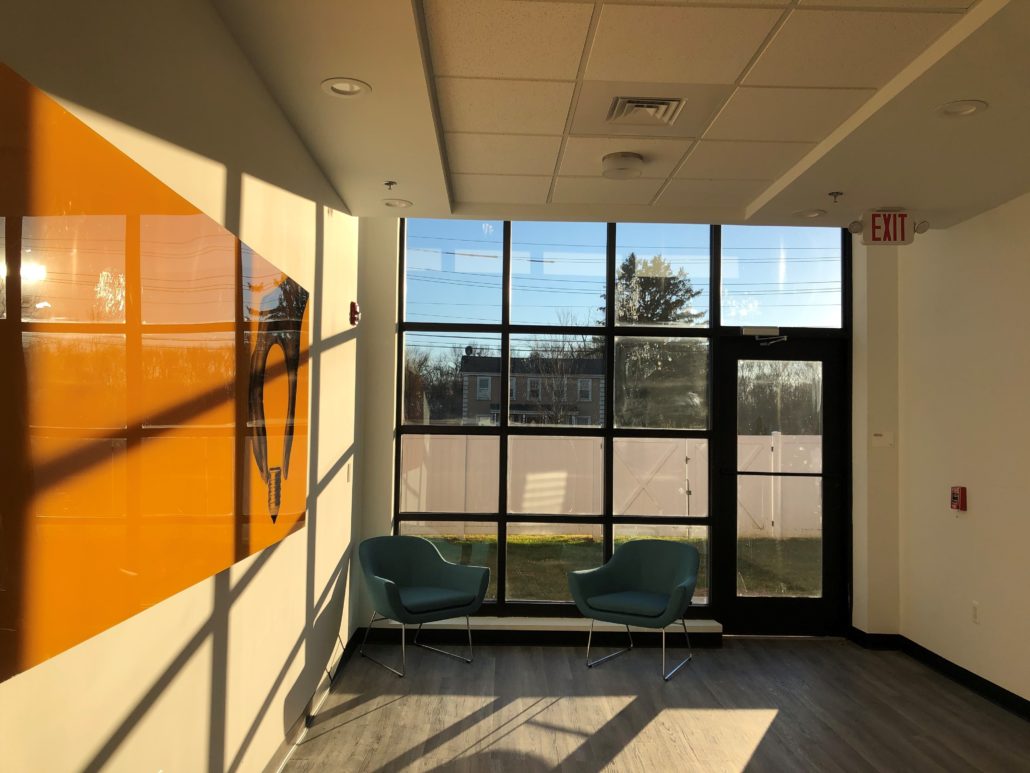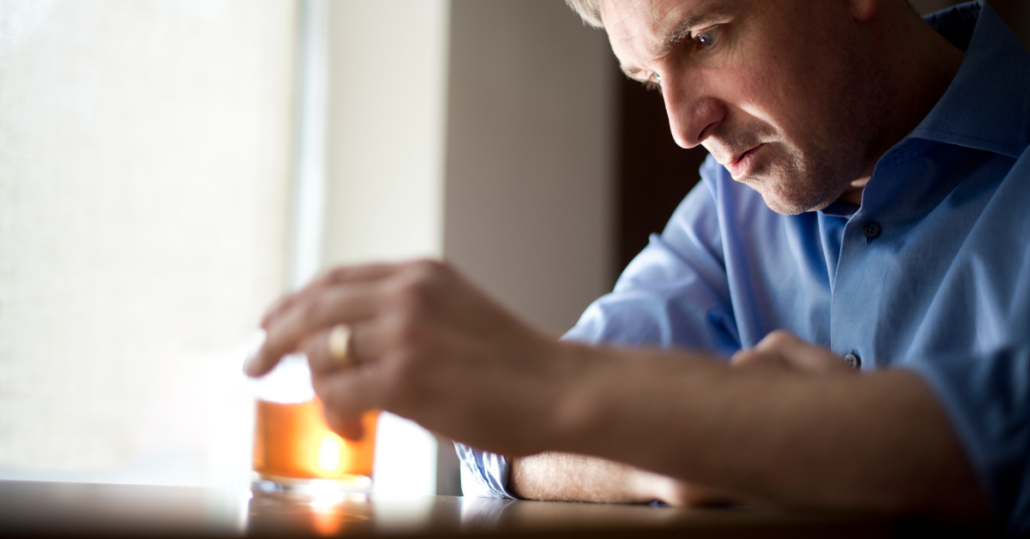What is Depression?
The National Institute of Mental Health (NIMH) estimates that about 7% of U.S. adults experience depression each year. [1] Depression symptoms take many forms, and there are no two people’s experiences that are exactly alike. A person with depression may not always seem sad to others. Clinical depression is different from sadness or grief — like when you experience a relationship breakup when you lose a loved one lose your job — unlike sadness, depression does not stop after only a day or two.
Chronic substance abuse sometimes “unmasks” depression, bipolar or other mood disorders—that is, triggers an increase in symptom severity from a subclinical to a clinically significant level. This appears to occur because, in genetically vulnerable individuals, the drugs exacerbate pathophysiological changes in neurotransmitter systems or signaling pathways that already are abnormal and underlie the mood disorder.
Even simple things — like getting dressed in the morning or eating at mealtime — can feel like large obstacles for a person that has severe depression disorder. Clinical depression goes by many names, such as “the blues,” biological or clinical depression, and major depressive disorder. The World Health Organization (WHO) estimates that over 264 million people live with depression. And not everyone is getting proper depression treatment.
It is normal to want to reach out and lend a hand when you see a family member or friend experiencing an episode of depression. But, when it comes to depression, what you can do to help is not always clear.
What Causes Depression?
Depression results from a complex interaction of social, psychological, and biological factors. People who have gone through adverse life events (unemployment, bereavement, traumatic events) are more likely to develop depression. Depression can, in turn, lead to more stress and dysfunction and worsen the affected person’s life situation and the depression itself.
There are interrelationships between depression and physical health. For example, cardiovascular disease can lead to depression and vice versa.


Get Your Life Back
Find Hope & Recovery. Get Safe Comfortable Detox, Addiction Rehab & Mental Health Dual Diagnosis High-Quality Care at the We Level Up Treatment Centers Network.
Hotline (877) 378-4154What are the Symptoms of Depression?
You might meet the criteria for a depression diagnosis if you have experienced most of the following symptoms every day over 2 or more weeks:
- Thoughts of death or suicide
- Feelings of guilt and worthlessness
- A persistent feeling of loneliness or sadness
- Getting too much or too little sleep
- Lack of energy
- Hopelessness
- Eating too much or too little
- Difficulties with concentration or attention
- Loss of interest in enjoyable activities or socializing
How Common is Depression?
Depression is a common illness worldwide, with an estimated 3.8% of the population affected, including 5.0% among adults and 5.7% among adults older than 60 years [2]. Approximately 280 million people in the world have depression. Depression is different from usual mood fluctuations and short-lived emotional responses to challenges in everyday life. Especially when recurrent and with moderate or severe intensity, depression may become a serious health condition. It can cause the affected person to suffer greatly and function poorly at work, at school, and in the family. At its worst, depression can lead to suicide. Over 700 000 people die due to suicide every year. Suicide is the fourth leading cause of death in 15-29-year-olds.
What are the Types of Depression?
Depression is not only hard to endure, it is also a risk factor for heart disease and dementia. “Depressive symptoms can occur in adults for many reasons.
Six common depression [3] types are:
- Major depression. The classic depression type, major depression is a state where a dark mood is all-consuming and one loses interest in activities, even ones that are usually pleasurable. Symptoms of this type of depression include trouble sleeping, changes in appetite or weight, loss of energy, and feeling worthless. Thoughts of death or suicide may occur. It is usually treated with psychotherapy and medication.
- Persistent depressive disorder. Formerly called “dysthymia,” this type of depression refers to low mood that has lasted for at least two years but may not reach the intensity of major depression. Many people with this type of depression type are able to function day to day, but feel low or joyless much of the time.
- Bipolar disorder. People with bipolar disorder—once known as manic-depressive disease—have episodes of depression. But they also go through periods of unusually high energy or activity. Manic symptoms look like the opposite of depression symptoms: grandiose ideas, unrealistically high self-esteem, decreased need for sleep, thoughts and activity at higher speed, and ramped-up pursuit of pleasure including sex sprees, overspending, and risk taking.
- Seasonal affective disorder (SAD). This type of depression emerges as days get shorter in the fall and winter. The mood change may result from alterations in the body’s natural daily rhythms, in the eyes’ sensitivity to light, or in how chemical messengers like serotonin and melatonin function. The leading treatment is light therapy, which involves daily sessions sitting close to an especially intense light source. The usual treatments for depression, such as psychotherapy and medication, may also be effective.
- Perinatal depression. This type of depression includes major and minor depressive episodes that occur during pregnancy or in the first 12 months after delivery (also known as postpartum depression).
- PMDD. This type of depression is a severe form of premenstrual syndrome, or PMS. Symptoms of PMDD usually begin shortly after ovulation and end once menstruation starts. Selective serotonin reuptake inhibitors (SSRIs), such as fluoxetine (Prozac) and sertraline (Zoloft), may reduce symptoms.
Get Help. Get Better. Get Your Life Back.
Searching for Accredited Drug & Alcohol Rehab Centers Near You? Or Mental Health Support?
Even if you have failed previously, relapsed, or are in a difficult crisis, we stand ready to support you. Our trusted behavioral health specialists will not give up on you. Call us when you feel ready or want someone to speak to about therapy alternatives to change your life. Even if we cannot assist you, we will lead you wherever you can get support. There is no obligation. Call our hotline today.
FREE Addiction Hotline – Call 24/7
How is Depression Syndrome Diagnosed?
Not everyone who is depressed experiences every symptom. Some people experience only a few symptoms while others may experience many. Several persistent symptoms in addition to low mood are required for a diagnosis of major depression, but people with only a few – but distressing – symptoms may benefit from treatment of their “subsyndromal” depression.
The severity and frequency of symptoms and how long they last will vary depending on the individual and his or her particular illness. Symptoms may also vary depending on the stage of the illness.
How is Depression Syndrome Treated?
Recovery from depression can take time, but there is always hope. There are many steps in depression treatments that you can take to manage this disorder. A medical professional can also offer referrals and they can encourage you to continue your treatment with a mental health specialist.
While more people are becoming aware of depression and its effects, the stigma tied to the condition continues. Also, your loved ones may remain silent. Many of them are fearful of making the situation worse for the person they care about. If you suspect a loved one could be experiencing a depressive episode, there are ways you can offer support. You can begin by talking with someone — anyone — about your feelings and finding immediate emotional support through sharing.
Getting support is essential in overcoming depression. It can be difficult to maintain a healthy perspective and sustain the effort required to beat depression on your own. At the same time, the very nature of depression makes it difficult for someone who has it to reach out for help. When you are depressed, the tendency is high to withdraw and isolate so that connecting to even close family members and friends can be tough.
Comfortable Facilities & Amenities
High-Quality Addiction & Mental Health Rehabilitation Treatment
Rehab Centers TourRenowned Addiction Centers. Serene Private Facilities. Inpatient rehab programs vary.
Addiction Helpline (877) 378-4154Proven recovery success experience, backed by a Team w/ History of:
15+
Years of Unified Experience
100s
5-Star Reviews Across Our Centers
10K
Recovery Success Stories Across Our Network
- Low Patient to Therapist Ratio
- Onsite Medical Detox Center
- Comprehensive Dual-Diagnosis Treatment
- Complimentary Family & Alumni Programs
- Coaching, Recovery & Personal Development Events
Depression Treatment
No matter how hopeless things may feel, you can get better with treatment — many people do.
Effective depression treatment depends on recognizing there is a problem, seeking to address it, and following a treatment plan. This can be tough when you have depression, but patience is the key when beginning treatment. According to the NIMH and countless research studies over the past 6 decades, clinical depression is readily treated with short-term, goal-oriented psychotherapy or talk therapy and antidepressant medications. For most people, a combination of the two works best and is often recommended by many healthcare professionals.

Inpatient Depression Treatment
There is an unfortunate stigma associated with being in inpatient treatment. Many people feel ashamed as if it’s a sign that they are “crazy” or “weak.” Some people fear that being hospitalized is the same thing as being institutionalized or sent to an asylum.
But that’s not the case. Usually, a stay in the rehab is just a way for you to recover in a safe and stable environment. This allows you to take a break from some of the daily stresses that contributed to your depression. Your health care providers can work with you to try different treatments and figure out which are best.
Medication for Depression
Antidepressants such as selective serotonin reuptake inhibitors (SSRIs) are the most prescribed medications for depression.
When you decide taking an antidepressant is right for you, it can take time to find the right one. Each person experiences depression a bit differently, so there is no “one-size-fits-all” medication.
Some people choose to switch medications or stop taking an antidepressant. Your doctor can help you make these changes, so talk with them if you feel the drug isn’t working for you. If you stop your antidepressant suddenly, it can cause serious side effects.
Psychotherapy for Depression
During psychotherapy, you learn about your condition and your moods, feelings, thoughts, and behaviors. It approaches scientifically proven to work with depression including cognitive-behavioral therapy (CBT), interpersonal therapy, and psychodynamic therapy. Therapy is one of the most effective depression treatments, and it has very few side effects. It is also typically covered by all insurers. Additional treatment options such as electroconvulsive therapy (ECT) or repetitive transcranial magnetic stimulation (RTMS) may be tried in more serious cases.
World-class, Accredited, 5-Star Reviewed, Effective Addiction & Mental Health Programs. Complete Behavioral Health Inpatient Rehab, Detox plus Co-occuring Disorders Therapy.
CALL (877) 378-4154End the Addiction Pain. End the Emotional Rollercoaster. Get Your Life Back. Start Drug, Alcohol & Dual Diagnosis Mental Health Treatment Now. Get Free No-obligation Guidance by Substance Abuse Specialists Who Understand Addiction & Mental Health Recovery & Know How to Help.
Who is at Risk for Depression?
Keep in mind that depression can look quite different from person to person, and the intensity of the symptoms may also vary. Also, you might not experience every symptom if you have depression. Like with most mental health conditions, researchers still are not sure what causes depression. But most experts consider the following to be contributing factors: genetics, family history, environment, gut bacteria, personality, social factors, and upbringing.
Other risk factors for depression may include:
- Major life changes
- Alcohol or other substance use
- A family history of mood disorders
- Trauma or chronic stress
- Medical conditions
- Certain medications
Depression and Addiction
Mood disorders, including depression and bipolar disorders, are the most common psychiatric comorbidities among patients with substance use disorders. Treating patients’ co-occurring mood disorders may reduce their substance craving and taking and enhance their overall outcomes.
Among individuals with a mood disorder, 32 percent had a co-occurring SUD. Of individuals with lifetime major depression, 16.5 percent had an alcohol use disorder and 18 percent had a drug use disorder. SUDs were particularly common among individuals with bipolar disorder—56 percent had a lifetime SUD. [4]
The self-medication explanation implies that individuals will tend to select drugs that alleviate their specific psychiatric symptoms. For example, some psychologists suggest that people with uncontrollable feelings of rage and aggression may choose opiates for these drugs’ mellowing effects, while people who are depressed may take cocaine because it exhilarates and energizes them.

Co-Ocurring Treatment
A report published by the National Institute on Drug Abuse suggests that there is a reason why people with a mental disorder, including depression, are up to twice as likely to develop substance abuse disorders. This mental illness may precipitate, exacerbate, or hasten substance abuse. An individual suffering symptom of a mental illness, like depression, is likely to attempt to self-medicate as well. [5]
In some cases, alcohol and other central nervous system depressants can trigger symptoms of depression. Eliminating drugs and alcohol from the body and mind system is sometimes enough to alleviate the symptoms of depression or anxiety. But sometimes, substance abuse changes brain chemistry for the long term.
Depression treatment takes time and your commitment. Sometimes, it might feel overwhelming or frustratingly slow. That is normal as recovery usually has its ups and downs. We Level Up NJ Treatment Center provides world-class care with round-the-clock medical professionals available to help you cope. All working as a team providing depression treatment for successful recovery.
At the We Level Up NJ treatment center, we provide world-class care with round-the-clock medical professionals available to help you cope. All working as a team providing both primary SUD or substance use disorder treatment along with co-occurring secondary Depression treatment for successful recovery. Make this your opportunity to reclaim your life. Call today to speak with one of our treatment specialists. Our counselors know what you are going through and will answer any of your questions. Your call is private and confidential and there is never any obligation.
Symptoms & Signs Of Depression In Recovery & Tips To Combat Depressive Episodes Video
Experience Transformative Recovery at the We Level Up Treatment Center.
See our authentic success stories. Get inspired. Get the help you deserve.



Start a New Life
Begin with a free call to an addiction & behavioral health treatment advisor. Learn more about our dual-diagnosis programs. The We Level Up treatment center network delivers various recovery programs at each treatment facility. Call to learn more.
- Personalized Care
- Caring Accountable Staff
- Comfortable Amenities
- Licensed & Accredited
- Renowned w/ 5-Star Reviews
We’ll Call You
Sources:
[1] https://www.nimh.nih.gov/health/statistics/major-depression – National Institute of Mental Health
[2] Depression – World Health Organization
[3] Six common depression types – https://www.health.harvard.edu/mind-and-mood/six-common-depression-types
[4] Mood Disorders and Substance Use Disorder: A Complex Comorbidity – National Center for Biotechnology Information, U.S. National Library of Medicine
[5] We Level Up – Mental Health » Depression Treatment
